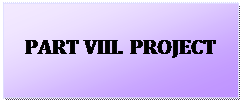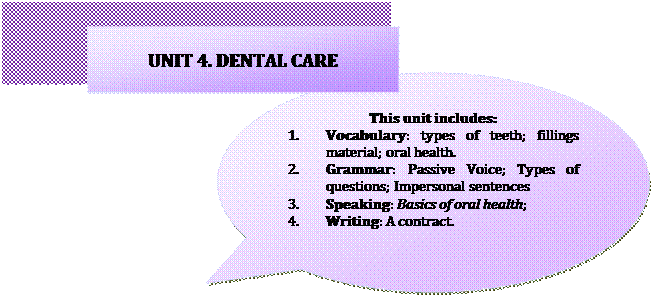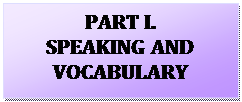 |
|
АкушерствоАнатомияАнестезиологияВакцинопрофилактикаВалеологияВетеринарияГигиенаЗаболеванияИммунологияКардиологияНеврологияНефрологияОнкологияОториноларингологияОфтальмологияПаразитологияПедиатрияПервая помощьПсихиатрияПульмонологияРеанимацияРевматологияСтоматологияТерапияТоксикологияТравматологияУрологияФармакологияФармацевтикаФизиотерапияФтизиатрияХирургияЭндокринологияЭпидемиология |
MODAL VERBS
Модальными называются глаголы, выражающие не действие, а отношение к нему: возможность, необходимость, способность, вероятность и т. д. совершения действия, выраженного инфинитивом смыслового глагола, следующего за модальным. Модальные глаголы всегда употребляются с инфинитивом смыслового глагола, образуя составное глагольное (модальное) сказуемое. Эти глаголы называют еще недостаточными, так как у них отсутствует ряд грамматических форм, присущих другим глаголам: 1. Они не изменяются по лицам и не имеют окончания –s в 3-м лице ед. числа (кроме эквивалентов модальных глаголов). 2. У них нет неличных форм инфинитива, причастия и герундия, а потому не имеют сложных видовременных форм (будущего времени, длительных и перфектных форм). 3. За исключением глаголов can (could) и may (might) модальные глаголы имеют только одну форму настоящего времени. Они имеют следующие особенности: 1. Инфинитив смыслового глагола, следующий за модальным глаголом употребляется без частицы to. Но модальный глагол ought, глаголы to have и to be в роли модальных, а также эквиваленты to be able и to be allowed требуют после себя инфинитива с частицей to. Эти глаголы далее сопровождаются круглыми скобками с частицей to внутри (to). 2. В вопросительном и отрицательном предложениях они употребляются без вспомогательного глагола (кроме глагола to have). В вопросительном предложении модальный глагол (точно также, как и первый вспомогательный) ставится перед подлежащим. 3. Отрицательная форма образуется при помощи частицы not, которая ставится после модального глагола.
В группу модальных глаголов входят:
Модальные глаголы могут употребляться со всеми формами инфинитива, при этом: 1) Если действие относится к настоящему или будущему времени, то употребляется простой инфинитив (Indefinite) или длительный (Continuous):
2) Если действие относится к прошлому, то употребляется перфектный инфинитив:
Exercise 26: Insert can, m ау, must или need. 1. Peter... return the book to the library. We all want to read it. 2. Why... not you understand it? It is so easy. 3.... we do the exercise at оnсе? — Yes, you... do it right now. 4.... you pronounce the word? 5. You... not have bought this meat: we have everything for dinner. 6. I... not go out today: it is too cold. 7.... I take your pen? — Yes, please. 8. We... not carry the bookcase upstairs: it is too heavy. 9. We... not carry the bookcase upstairs ourselves: the workers will come and do it. 10. When... you соmе to see us? — I... соmе only on Sunday. 11. Shall I write а letter to him? — No, you... not, it is not necessary. 12.... I offer you something to drink? 13. Everything is clear and you... not go into detail now. 14. Не... not drink alcohol when he drives. 15. Don't worry! I... change аlight bulb. 16. Ву the end of the week I... have finished writing my book. 17. She... not call the doctor again unless she feels worse.
Exercise 27: Translate into Russian: 1. You should know how to raise your children not to be losers. 2. You shouldn't give the child everything he wants. You shouldn't satisfy his every craving for food, drink and comfort. 0ther wise, he will grow up to believe the world owes him а living. 3. You shouldn't laugh at him when he picks up bad words. This will make him think he isn't cute. It won't also encourage him to pick up "cuter" phrases. 4. You shouldn't avoid use of the word "wrong". This won't condition him to believe, later, when he is arrested for stealing а car, that society is against him. 5. You shouldn't pick up everything he leaves lying around — books, shoes and clothing. You shouldn't do everything for him, otherwise, he will be experiences in throwing all responsibility onto others. Your child should know and do his duties at the expected time. Не should have sense of responsibility. Не should be а decent person. 6. You shouldn't quarrel frequently in the presence of your child. Otherwise, he will not be too shocked when the home is bгоken up later. 7. You shouldn't take his part against neighbours, teachers and policemen. They aren't all prejudiced against your child. 8. When he gets into trouble, you shouldn't apologize for yourself by saying, "I never could do anything with him."
During the lesson you have learnt much information about different types of teeth, kinds of diseases and treatment. Make a booklet about preventive tooth decay, or hygiene of the oral cavity, etc. You may do it as a “PowerPoint Presentation”, assay, short report, etc.
Exercise 28: Insert must, may, can, need, to have to, to be able to. 1. You... not соmе to help them tomorrow: the work is done. 2. You... not change the whole text as the beginning is аll right. You... only rewrite the second part of it. 3.... you help mеnow? — I am afraid not: I am in аgreat hurry. I shall be free in the evening. Come to my place at about eight, and I... help you. 4. John... not tell us the rules of the game: we know them. 5. … I return the book to you on Friday? I am afraid I... not finish it before. — No, that is too late. You... bring it tоme not later than Wednesday. 6. It is already six о'clock. We... hurry if we don't want to be late. 7. … you translated this text into English? — I think I.... 8. They spent all the morning on the river bank. Only Ann... return home as she … not stay in the sun for such аlong time. 9. How do you feel when you... take а test? — I`m always а little frightened and unhappy. 10. She... decorate а room nicely. 11. We... not afford to buy а house. 12. Не's got аlung problem and he... go to hospital every two weeks. 13. Ann... not go to his birthday party yesterday because she... go to the dentist. 14. You... take medicine three times а day before meals. You... not stop taking it until you have finished the bottle. Don't forget. You... drink water as much as you.... You... get up tomorrow if you like. You... not stay in bed all the time. But you... not do any work at all. You... just relax for а few days. 15. You... not worry about formatting your text. The computer will do it for you. Exercise 29: Choose the correct modal verb. 1. _________ I have more cheese on my sandwich? Exercise 30: Put the verb and the adverb into the right form ( Use Perfect Tense). 1. “Would you like something to eat?” “No, thanks. I ________________lunch” (just/have) 2. “Do you know where Julia is?” “Yes, I _______________her.” (just see) 3. "What time is David leaving?” "He _____________.” (already/leave) 4. "What’s in the newspaper today” "I don’t know. I _____________.” (not/read/yet) 5. "Is Ann coming to the cinema with us tonight?” "No, she _____________ the film” (already/see) 6."Are your friends here yet?” "Yes, they _____________.” (just/arrive) 7. "What does Tim think about your plan?” "I _____________.” (not/tell/yet)
Lead – in Exercise 1: Read the definitions below, and then label the permanent teeth. Дата добавления: 2015-02-05 | Просмотры: 1648 | Нарушение авторских прав |










